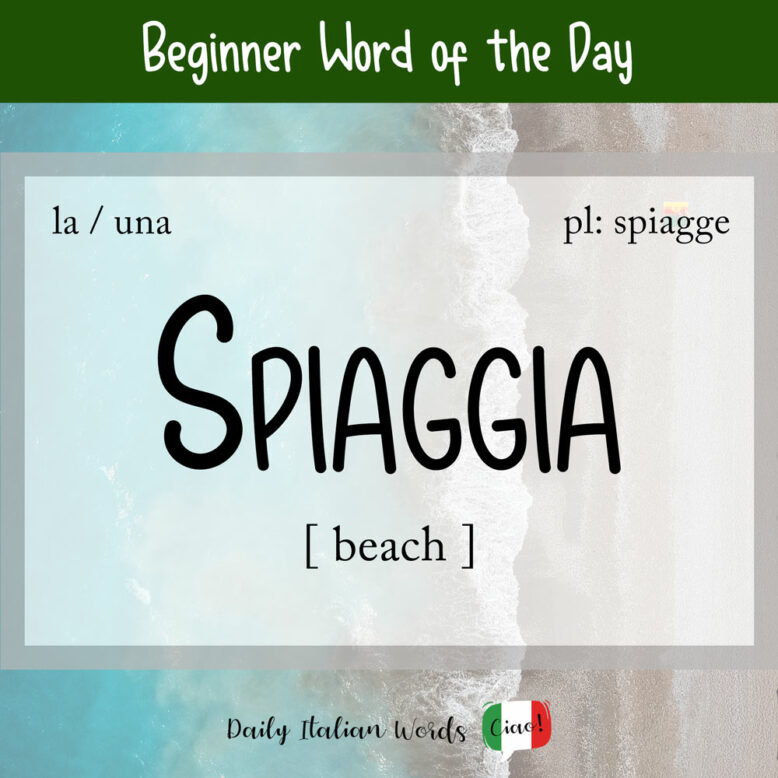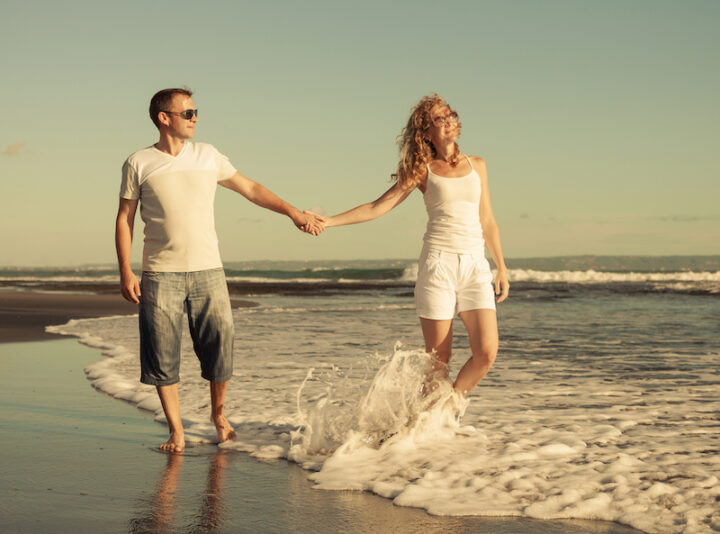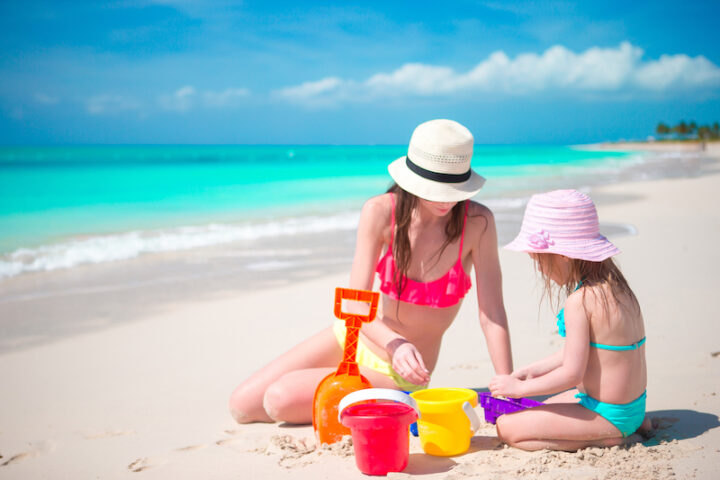My husband and I are extremely lucky live just a stone’s throw away from the beach, which translates as spiaggia (feminine, plural: spiagge) in Italian. It is a derivative of the now-obsolete word piaggia which means a variety of things including slope, shore and land.

Below are the verbs you’ll most often see used with the word spiaggia in context:
- andare alla / in spiaggia = to go to the beach
- stare sulla spiaggia = to stay on the beach
- scendere in spiaggia = to go (down) to the beach
- trascorrere la giornata in spiaggia = to spend the day at the beach
- passeggiare sulla / lungo la spiaggia = to walk along the beach
Mi piace camminare lungo la spiaggia al tramonto.
I like walking along the beach at sunset.

There are a number of different kinds of beaches people can visit when they go on holiday to the seaside with their families. A spiaggia libera is a free public stretch of beach where you can bring your own umbrella and beach chair from home, whereas at a spiaggia a pagamento, you are required to pay a fee to use the beach. A spiaggia attrezzata has complete amenities including beach loungers and umbrellas.
Unfortunately it isn’t easy to find a spiaggia tranquilla (quiet beach) in Italy during the summer months so most have to settle for spiaggie affollate (crowded beaches).

Some well-known things you’ll see at the beach include:
- sabbia = sand
- mare = sea
- conchiglia = shell
- ombrellone da spiaggia = beach umbrella
- lettino da spiaggia = beach lounger
- castello di sabbia = sand castle
- costume da bagno = swimming costume
- paletta = spade
- secchiello = bucket

Spiaggia can also translate as any shore where the land meets a body of water. They may be sabbiosa (sandy), rocciosa (rocky) or fangosa (muddy).
If you call someone a tipo/a da spiaggia (lit: a beach type), the implication is that they are a bit strange or bizarre. This expression is an allusion to how a person wearing beach clothes – say, a bathing suit and water wings – would be perceived in the context of everyday life.
Another popular expression is ultima spiaggia (lit: last beach) which is another way of saying l’ultima speranza (last hope) or last resort.
Per molti lavoratori stranieri l’Italia è l’ultima spiaggia.
For many foreign workers, Italy is the last hope.
A synonym used to describe a touristic sandy beach complete with lounge chairs, umbrellas, and bars selling refreshments is lido. It also stands for a strip of land which separates the sea from a lagoon such as, for example, the Lido di Venezia.
Heather Broster is a graduate with honours in linguistics from the University of Western Ontario. She is an aspiring polyglot, proficient in English and Italian, as well as Japanese, Welsh, and French to varying degrees of fluency. Originally from Toronto, Heather has resided in various countries, notably Italy for a period of six years. Her primary focus lies in the fields of language acquisition, education, and bilingual instruction.


